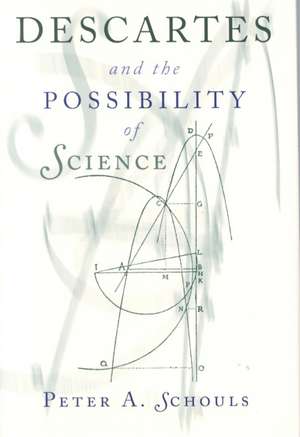Descartes and the Possibility of Science
Autor Peter A. Schoulsen Limba Engleză Hardback – 14 aug 2000
Preț: 437.99 lei
Preț vechi: 568.82 lei
-23% Nou
Puncte Express: 657
Preț estimativ în valută:
83.82€ • 87.19$ • 69.20£
83.82€ • 87.19$ • 69.20£
Carte tipărită la comandă
Livrare economică 14-28 aprilie
Preluare comenzi: 021 569.72.76
Specificații
ISBN-13: 9780801437755
ISBN-10: 080143775X
Pagini: 192
Dimensiuni: 152 x 229 x 21 mm
Greutate: 0.42 kg
Ediția:New.
Editura: MB – Cornell University Press
ISBN-10: 080143775X
Pagini: 192
Dimensiuni: 152 x 229 x 21 mm
Greutate: 0.42 kg
Ediția:New.
Editura: MB – Cornell University Press
Descriere
This new book describes the intellectual structure of modern science as a body of knowledge produced by the Cartesian method. For Descartes, science was possible only because of certain features of the very nature of human beings. Peter A. Schouls...
